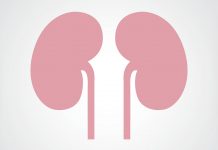NHS set to boost GP workforce with thousands of new staff
Thousands more staff will be recruited as part of an expansion of the GP workforce ahead of winter, aiming to free up time to...
Psychotic disorders may increase the risk of dementia
According to research from University College London, people diagnosed with psychotic disorders are 2.5 times more likely to develop dementia.
The research, which has been...
Transforming cancer care through genomics
Lorna Rothery spoke to Parker Moss, Chief Partnership Officer at Genomics England about how the organisation’s Cancer 2.0 initiative is harnessing the potential of...
Ultra-processed food intake in mothers linked to obesity in children
A new study shows that the offspring of mothers consuming ultra-processed foods have a higher risk of being overweight or obese.
The researchers published their...
Large scale genetic study into the causes of stammering is to be launched
A study of 1500 adults and children in the United Kingdom will aim to boost understanding of the genetic causes of stammering.
The study will...
Liver cancer cases set to rise by 55% in the coming decades
Researchers have called for more to be done to control liver cancer as cases are set to rise by 55% by 2040.
Primary liver cancer...
Chemists are working towards a marijuana breath analyser
A University of California, Los Angeles team are getting closer to developing a handheld tool marijuana breath analyser.
The marijuana breath analyser device uses a...
Researchers reveal the mechanisms behind acute kidney injury
An interdisciplinary research team has used single-cell sequencing techniques to uncover the molecular processes associated with acute kidney injury.
Acute kidney injury is a common...
What role can technology play in alleviating the radiology crisis?
With healthcare systems across the world struggling to keep up with the rising demand for radiology services, especially during the pandemic recovery, technology to...
The potential of gene mutation testing for epithelial ovarian cancer
Scientists from the University of Manchester have discovered that two gene families are linked to epithelial ovarian cancer risk.
Epithelial ovarian cancer is the most...
Making treatment for malignant tumours better for the kidneys
Researchers at the Paul Scherrer Institute have optimised treatment for malignant tumours using radionuclides. Potential side effects to the kidneys can now be significantly...
Transforming the way we diagnose patients through medical diagnostics
Claire Wallace outlines how advancing the use of medical diagnostics could improve the detection of diseases and delivery of care, but says we must...
Challenges in the prevention and treatment of pressure injuries
Board members of the National Pressure Injury Advisory Panel outline the key issues in the prevention and treatment of pressure injuries and share some...
Understanding the neurological symptoms associated with COVID-19
New research from King’s College London may have uncovered the reason why people experienced negative neurological symptoms after contracting COVID-19.
During a recent study, researchers...
Early onset dementia can increase suicide risk
A study from Queen Mary University of London and the University of Nottingham has found that the risk of suicide is seven times higher...
Continuity of care is key to the treatment of heart disease
According to researchers at the University of Bristol, people at risk of heart disease are more likely to receive the correct medication and better...
Children with Down’s syndrome are highly susceptible to diabetes
According to new research from Queen Mary University of London and King's College London, young adults and children with Down’s syndrome are four times more...
WHO launch the first blueprint for dementia research
The World Health Organization (WHO) has released the first blueprint for dementia research, guiding policymakers.
Dementia continues to pose a challenge to global healthcare systems....
A new discovery could lead to effective hepatitis B treatment
A team of researchers from the University of Geneva have identified a key protein complex that could open the door to a new hepatitis...
Investigating safety risks in maternity care
Lorna Rothery spoke to Dr Lesley Kay, Acting Executive Medical Director of the Healthcare Safety Investigation Branch about how the organisation is working to...





















